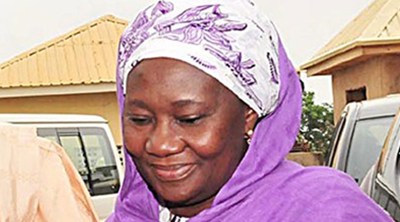The Pentagon, the United States of America’s military coordinating body, has denied claims by President Goodluck Jonathan that Nigeria had applied since early 2014 for assistance to send troops to combat the Boko Haram insurgents.
According to Pentagon, discussions on troops to combat the Islamist body has just begun based on the formation of the Multi-National Joint Task Force.
The Pentagon Press Secretary, Rear Admiral John Kirby, also told the Wall Street Journal that the US was yet to receive an official request for troops from Nigeria.
Kirby said what the US was doing now has been to enter into discussion on how it could participate in the Multi National Joint Task Force with other African nations to assist Nigeria.
Kirby said the task force will be designed to help build up Nigeria’s own counterterrorism capabilities.
He said: “These discussions are really just now starting.
“I can tell you that there are no plans as I speak here… unilaterally to send or to add US troops into Nigeria.
According to the Wall Street Journal, Nigeria’s President Goodluck Jonathan has asked the United States of America to send combat troops to fight Islamist insurgents.
Boko Haram fighters invaded Gombe city on Saturday and crossed into Chad for the first time on Friday.
“Are they not fighting ISIS? Why can’t they come to Nigeria?” Jonathan asked of US troops in an interview with the Wall Street Journal on Friday, in reference to the Islamic State group active in Syria and Iraq.
The Nigerian president told the US newspaper that he had been asking Washington to send combat soldiers and military advisors since early 2014.
Jonathan in an interview with the Wall Street Journal said the United States had ignored requests by Nigeria for troops to combat the Boko Haram militants.
He said the country had in early 2014 reached out to the US for assistance, adding: “Are they (America) not fighting ISIS?
“Why can’t they come to Nigeria?
“…they are our friends.
“If Nigeria has a problem, then I expect the US to come and assist us.”
He added that Nigeria had intelligence that Boko Haram received “training and funds” from IS.
Hours after Jonathan spoke with American journalists, hundreds of Boko Haram militants stormed the northeastern Nigerian city of Gombe on Saturday morning.
Witnesses told news agencies that fighters firing heavily invaded the capital of Gombe State and threw leaflets calling on residents to boycott upcoming general elections.
“The Boko Haram gunmen are now at the Jeka-da-Fari roundabout in the centre of the city, firing indiscriminately and throwing pamphlets calling on people not to participate in the elections,” resident Ali Dahiru told AFP.
The fighters appealed to residents to boycott the elections which had originally been planned to take place on Saturday before they were postponed until March 28.
Witnesses said the attackers met little resistance at first, but government troops backed up by fighter jets later engaged them.
Boko Haram appeared to be evacuating the city later on Saturday, and a Nigerian government security source told Reuters the attack had been repelled.
The local governor has imposed a 24-hour curfew across Gombe State following the violence.
The Islamist group has been blamed for several attacks that have targeted Gombe city in the past three years, including a car bombing that left at least 20 people dead last December.
Two weeks ago, two suicide bombers blew themselves up outside a stadium, just minutes after President Jonathan had left the venue where he had given a campaign speech, leaving many injured.
Boko Haram wants to establish an Islamist caliphate in northeastern Nigeria and the group has stepped up its offensive both within Nigeria and against border towns of neighbouring countries in recent weeks.
The violence has forced the Nigerian authorities to postpone general elections scheduled on Saturday by six weeks.
By the new polling date of March 28, “we will be able to take over all the territories that they are holding,” Jonathan told the Wall Street Journal.
On Friday, Boko Haram fighters attacked Chad for the first time, targeting a village on the shores of Lake Chad.
Nigeria, Cameroon, Chad and Niger agreed on February 7 to mount an African Union-backed regional military force with African Union backing.













